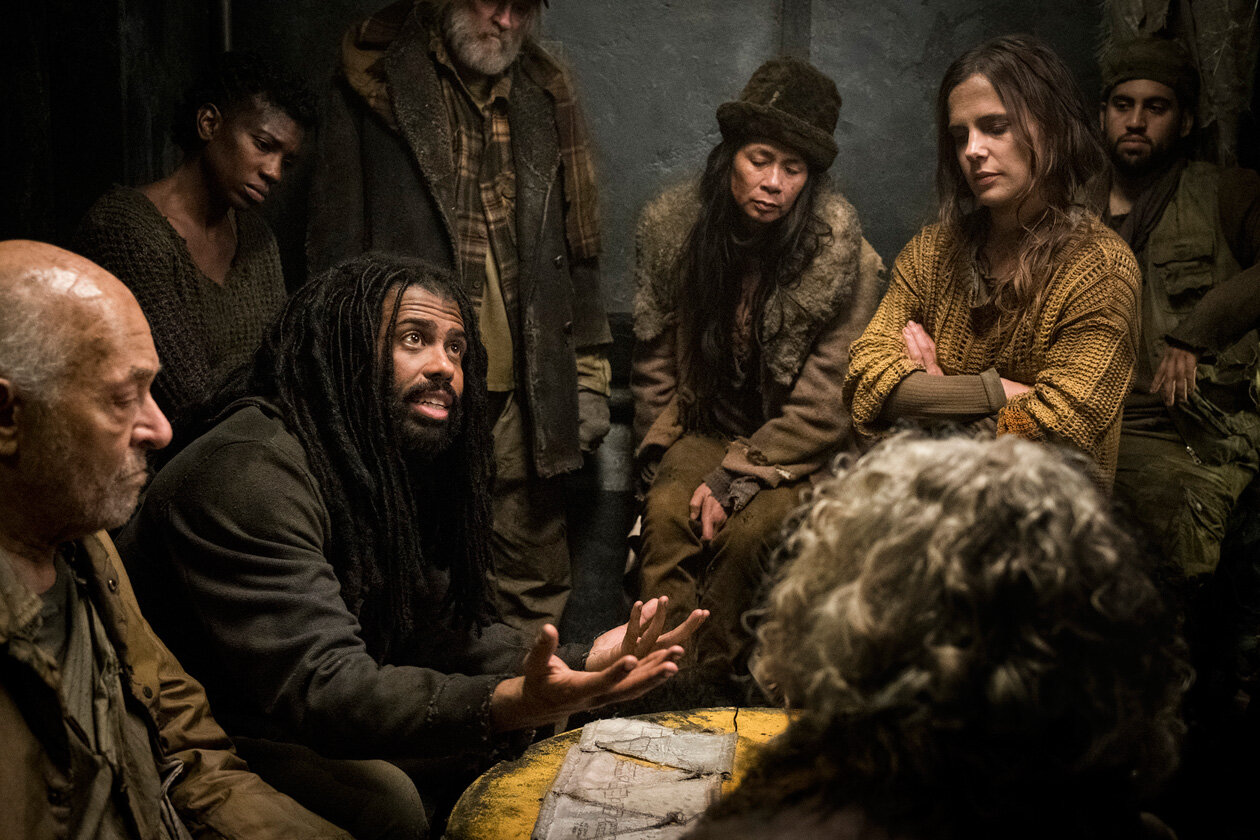TV REVIEW: 'Snowpiercer' is dead like winter
Daveed Diggs stars as Andre Layton in Snowpiercer, the TV adaptation of the Bong Joon-ho sci-fi film.
In the not-so-distant future, Earth has frozen over and almost all life has been decimated, save for the 3,000 passengers - and the delicate ecosystem that helps keep everyone alive - aboard a giant train that perpetually circumnavigates the globe. It sounds familiar because it is; first introduced to audiences as a graphic novel in 1982 as Le Transperceneige, it was adapted into a feature film in 2013 as Snowpiercer to near-universal acclaim. Directed by Bong Joon-ho, it was a gripping treatise on social stratification (now a trademark of his), and the film was praised for its deft handling of the story’s apocalyptic vision. Fast forward to 2020, and we now have a TV iteration that, so far, struggles to answer the unenviable question of… why?
Of course, the simple reason is to make money, but the same arguments Snowpiercer makes has been made ad nauseum since the 2013 film, and even more so during a pandemic that seems to have further divided people based on socioeconomic and racial factors. In fact, the long-gestating TV series should have more things to say considering the current environment, but instead it continues to live in the past and refuses to make any bold statements.
Daveed Diggs is Andre Layton, a former homicide detective who lives with other have-nots at the back of the train and who are derisively nicknamed the “Tailies.” He’s one of the rebel leaders against the haves who live at the front of the train, but right before the rebellion begins, he’s called up to the front to help solve a murder. He is aided by Till (Mickey Sumner), a security guard and an adversary of the Tailies, and kept under watch by Melanie Cavill (Jennifer Connelly) a.k.a. the Voice of the Train, a first-class passenger who broadcasts announcements over the train’s PA system and the only one who seems to have a relationship with the mysterious Mr. Wilford, the architect and builder of Snowpiercer.
Jennifer Connelly as Melanie Cavill.
The murder mystery is a departure from the film and one of the more interesting developments through the first two episodes. But the show can’t really escape its root conflict, and Andre constantly (and annoyingly) reminds us that even though he’s gotten a taste – literally, they offer him a grilled cheese sandwich and some tomato soup – of what life is like at the front, he still prefers to be with the Tailies because they are his friends and he is neither traitor nor hypocrite. It’s an interesting premise but also one that requires more explanation because Andre’s reasons are so altruistic that it seems far more removed from reality than Black Mirror. (A reflection of our current environment or maybe I’m a huge cynic). To be so unselfish is to be irrational, and the show owes an explanation.
This potentially meaningful character examination is pushed aside for, once again, the root conflict, and the characters literally do it themselves. (The show is definitely very on-the-nose). Andre agrees to take on the investigation for a few special favours for his buddies, but actually he’s using the opportunity to understand the train’s inner workings so the Tailies can stage a better prepared rebellion. Going back to the problem the film had so smartly dealt with already makes the TV series a bore, especially at the beginning, because like Prison Break the underdogs will have to eventually break free, and early indications are that it’s probably going to be a bloody and uninteresting action sequence.
Not only does it feel like the story has already played out beyond what is being shown, but it seems to have also unwittingly revealed a clue to a potential plot twist; the Tailies believe the train to be about a hundred cars long, but the series’ final episode is titled “994 Cars Long”, and with season two already on order, it’s a hint that Andre’s big revelation will be that a successful but costly rebellion is only the first chapter in a very long war.
The TV series had been in development for years and reportedly gone through various changes in a classic battle between creatives and executives, so the end product feels like a daytime soap, sprinkled with ineffective CGI and corny lines like, “back off, douche!” Nothing is subtle and it just feels like Snowpiercer the TV series is stuck in the past, and instead of being a forward-looking lens is a lesser mirror image of the original material.
Snowpiercer gets one and a half stars out of four.



